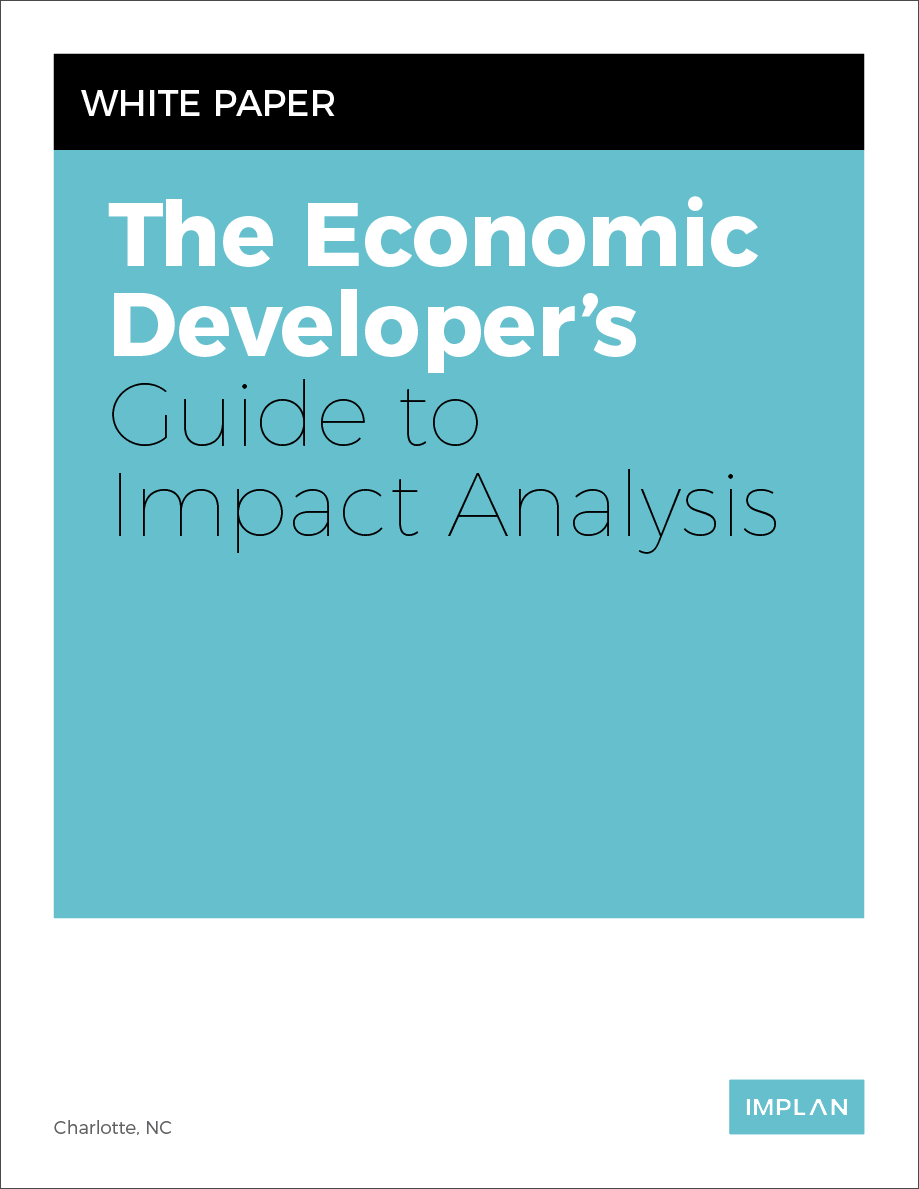Regulatory standards, depending on your reading of the latest IRS Tranches and guidance, have either changed or come into clearer focus when it comes to what the CDFI Fund identifies as a "successful" Opportunity Zone (OZ) project. Regardless of your reading of IRS's latest missives, there are a few tactics worth highlighting that will ensure that the economic impact analyses describing the significance of your projects and the potential economic significance of your program (or portfolios) will stand ready for review when the time comes to evaluate their contribution to the economic well-being of your service area.
Tim French
Recent Posts
What You Need to Know to Future-Proof Your Opportunity-Zone-Based Economic Impact Analyses
Topics: Data, Economics, Funding, Contribution Analysis, New Market Tax Credit, Methodology, "Taxes", Opportunity Zones
Many fail and few succeed when it comes to breaking ground on development projects as complicated as those in the mixed-use category. Some languish, some fail, and others suffer hostile take-downs. Still, there are a handful of foreseeable pitfalls which you can easily dodge while in the planning phase of a project. Here are a few of these traps that we’ve observed and how best to avoid them.
Topics: Data, Economics, Employment, Funding, Methodology
The Many Tributaries of Big Data: Where Does U.S. Economic Data Come From?
Economic data flows and collects from sources both varied and unique. But which sources are significant and why? And how complex does this world of big data get when it comes to trying to explore the economic landscape? Cue Ms. Frizzle’s “Seatbelts, everyone!” line and let’s take a tour of economic data sources on the Magic School Bus!
Topics: Data, Economics, Technology, Methodology
Translating Real-World Survey Results into an Economic Impact Analysis
Ever since the likes of IBM’s Watson, Google Trends, and Bloomberg Terminal emerged, data-driven decision making shifted from fad to fixture in the business world. But the fundamental shift that big data made in the world of research didn’t change which questions to ask, but rather how we ask those questions. Or, as Douglas Adams might say, you need to really know what you’re asking before you switch on Deep Thought.
Topics: Data, Economics, Technology, Methodology
Why Selecting the Right Sector or Commodity Matters: Modeling with Margins
No two sectors (or businesses) are alike. One fundamental differentiator is that some sectors make goods and some sectors distribute goods as a service. This simple but substantial distinction can significantly affect the quality or range of your results while modeling economic impacts.
Topics: Data, Economics, Technology, Methodology
Economics of E-Scooters (Part 2): E-Scooter vs. TriMet Net Analysis
Barely more than a year ago, e-scooters suddenly flooded city streets across the country. But their presence wasn’t always met with enthusiasm. Antagonistic cities and towns cited public health concerns, street congestion, and even harassment as cause for banning the popular short-trip transportation option altogether.
Topics: Data, Economics, Technology, Methodology
There are several advantages to using MRIO in place of traditional single-region input-output analysis techniques. Mainly, MRIO exposes the connections and dependencies between regional economies by allowing individual regional identities to be maintained as a part of a broader regional analysis. In IMPLAN, results are filterable so that in an MRIO analysis, the incoming trade to a region can be isolated from or aggregated to the local impacts of the larger surrounding region.
Topics: Data, Economics, Methodology
After more than a year since Amazon’s deadline for RFP submissions, over 200 subsequent submissions, and a culling of 20 possible locations earlier this spring, we’ve finally (almost) got our answer—an HQ2 with one foot in Crystal City, Virginia and another in Queens, New York. And mere hours after the news broke, markets are already reacting in some rather severe (and not altogether unexpected) ways.
Topics: Economics, Methodology
Demand for jet engines is taking off. Domestic airlines have relied on up-fitting or remodeling equipment originally constructed in the 1970s or later. This generation of equipment is slowly approaching its expiry. And internationally, travel tastes have changed. Airlines are one-upping each other to offer the most top-of-the-line luxury flights which are incorporating features including personal compartments with beds, full-service bars, and incredible food options.
Topics: Data, Economics, Methodology
Amazon recently announced that it would be raising the minimum wage paid to workers to $15 per hour (minimum wage standards sometimes vary by state and city; the current federal minimum pay is $7.25). According to the company’s blog, the wage increase will go into effect on 1 November, will be extended to associates employed by temp agencies, and is anticipated to affect the paychecks of more than 250,000 Amazon employees, as well as more than 100,000 seasonal holiday employees. Workers at Amazon subsidiaries (including Whole Foods) will also benefit from the parent company’s new initiative to “lead on pay.”
Topics: Data, Economics, Methodology












.png?width=80&name=IMPLAN_Logo_Print-Vector_NEW%20(2).png) Copyright 2025
Copyright 2025